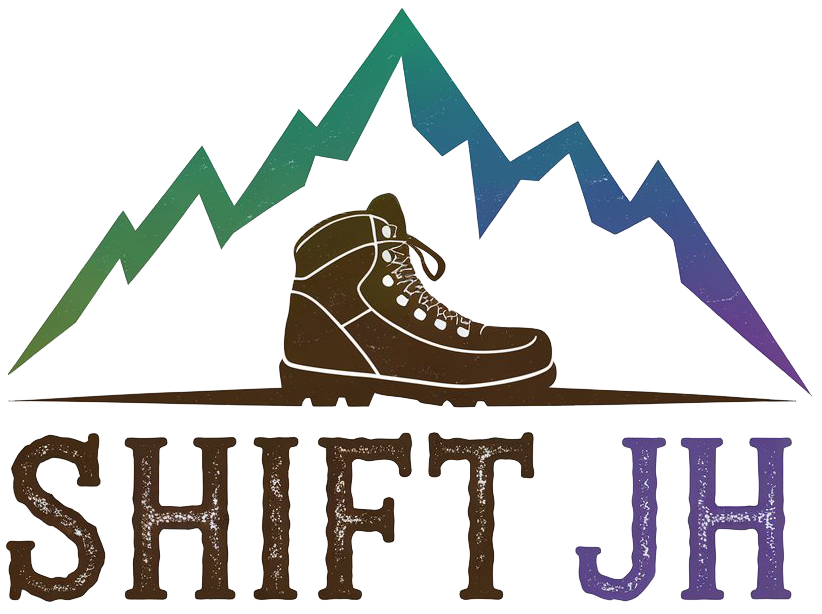The SHIFT Awards celebrate individuals, initiatives, and organizations that make innovative, impactful, and replicable contributions to advancing the health benefits of spending time outdoors. Since their inception, these awards have aimed to highlight the critical connections between outdoor recreation, conservation, and public health.
Each year, the SHIFT Awards identify and evaluate initiatives from across the United States, seeking out projects that promote the physical, mental, and emotional health benefits of outdoor experiences. Nominees are carefully assessed based on their innovation, impact, and ability to serve as a model for other communities or organizations.
Special emphasis is placed on equitable access to nature and how initiatives address the needs of underserved or underrepresented populations.
Award Categories
The SHIFT Awards celebrate excellence in outdoor initiatives by recognizing contributions across several categories.
These categories reflect the multifaceted ways in which organizations, individuals, and programs connect communities with nature while addressing pressing public health and conservation challenges.
Each category highlights distinct approaches to advancing health and wellness through outdoor engagement.
Last chance to apply for the SHIFT Awards! We have extended the deadline to March 3rd! https://t.co/Az77hEX5wz pic.twitter.com/AR28yLK9eT
— The SHIFT Awards (@AwardsShift) February 28, 2022
1. Non-Profit Leadership
The non-profit leadership category is dedicated to non-profit organizations that implement innovative, community-driven solutions to foster connections with the natural world.
These organizations often work at the intersection of conservation, health, and social equity, addressing barriers to outdoor access and creating inclusive opportunities for engagement.
- Many non-profits use culturally specific strategies to reach underserved communities, ensuring that their work resonates with diverse populations.
- Programs often integrate outdoor learning with broader educational goals, equipping participants with the knowledge to become environmental stewards.
- Collaboration with schools, local governments, and other non-profits enhances the scope and impact of these initiatives.
Such organizations act as catalysts for change, demonstrating that nature can be a powerful tool for building healthier and more resilient communities.
2. Public Land-Management Innovation
The public land-management innovation category honors initiatives that redefine how public lands are managed, with an emphasis on improving access, conservation, and recreational opportunities.
By focusing on creative land management solutions, these programs aim to connect more people with natural spaces, especially in urban and underserved areas.
- Transforming neglected or underutilized areas into vibrant parks or trails that encourage outdoor activity and community gathering.
- Developing comprehensive systems of trails and pathways that link neighborhoods, schools, and parks, making outdoor recreation accessible to all.
- Collaborating with local governments, private organizations, and community groups to ensure sustainability and inclusivity in land management practices.
These programs set a precedent for balancing conservation with accessibility, proving that public lands can serve both ecological and human health purposes.
3. Youth Engagement

The Youth Engagement category celebrates initiatives that inspire young people to build lasting relationships with nature through hands-on learning and outdoor adventures.
These programs focus on creating equitable opportunities for children and teens, particularly those from underserved or urban areas, to experience the transformative benefits of the outdoors.
- Programs integrate environmental science, STEAM (science, technology, engineering, arts, and math), and other disciplines with outdoor experiences to enhance academic and personal growth.
- Hiking, kayaking, camping, and similar activities help youth develop a sense of adventure and environmental responsibility.
- Many initiatives provide mentorship opportunities, equipping young participants with skills to become leaders and advocates for conservation in their communities.
By engaging youth in nature-based learning, these programs not only nurture future environmental stewards but also contribute to their physical, emotional, and social well-being.
4. Research
This category recognizes groundbreaking academic and scientific contributions that deepen our understanding of the health benefits of nature.
Researchers in this field investigate the connections between outdoor activities, physical and mental health, and environmental well-being, offering evidence-based insights that drive policy and practice.
- Studies focus on how exposure to green spaces, blue spaces (waterways), and natural environments can reduce stress, improve mental health, and enhance physical activity levels.
- Research helps shape targeted, evidence-based interventions for communities, ensuring that programs are impactful and inclusive.
- Many researchers examine environmental health disparities, focusing on how underserved populations can better access the benefits of nature.
Through robust methodologies and data-driven findings, this category underscores the essential role of research in shaping the future of outdoor recreation and public health.
5. Health and Nature Champion

The Health and Nature Champion category honors individuals who have dedicated their careers to fostering connections between people and the natural world.
These champions often work tirelessly to promote the mental, physical, and emotional health benefits of outdoor recreation and conservation.
- They play a key role in shaping policies, programs, and initiatives that highlight the importance of outdoor engagement for health.
- Through their work, these individuals empower communities to embrace the outdoors as a tool for health and well-being.
- Champions often develop or support creative solutions that break down barriers to outdoor access, especially for marginalized groups.
These leaders demonstrate the transformative power of nature, serving as role models and advocates for integrating outdoor experiences into everyday life for the betterment of society.
The Value of the SHIFT Awards
The SHIFT Awards extend far beyond simply recognizing excellence, they serve as a powerful platform to amplify the efforts of individuals, organizations, and initiatives working at the critical intersection of outdoor recreation, conservation, and public health.
By shining a spotlight on these trailblazers, the awards not only celebrate their achievements but also provide them with the resources, visibility, and connections needed to expand their impact and inspire broader change.
Integration with the SHIFT Summit
Day 3 of #SHIFT2023: Talking about #NatureDeficitDisorder and what Oregon is doing to integrate youth development and nature exposure. @OROutdoorschool @vamonosoutdoors @InstitutoAlana @HealthierGen #KidsInNature @RichLouv pic.twitter.com/tvR2fNA1qJ
— SHIFT JH (@SHIFTjh) September 14, 2023
One of the most significant ways the SHIFT Awards amplify the work of recipients is by incorporating them into the programming of the annual SHIFT Summit.
- Policymakers
- Researchers
- Conservationists
- Healthcare professionals
- Community leaders
Through panel discussions, workshops, and keynote addresses, recipients gain a platform to highlight their innovative approaches and best practices, fostering a rich exchange of ideas that drives collective progress in the field.
Building a Network of Change-Makers
The SHIFT Awards also connect recipients with a growing network of like-minded leaders and organizations. This collaborative environment creates opportunities for partnerships, mentorships, and joint initiatives that further amplify their work.
Whether it’s a non-profit finding new funding opportunities, a researcher collaborating on groundbreaking studies, or a youth program learning from other successful models, the connections forged through the SHIFT Awards and Summit can have lasting ripple effects on their work.

